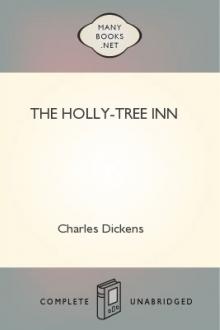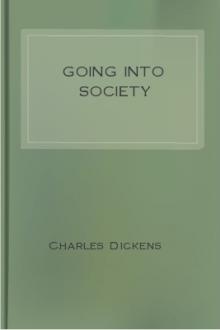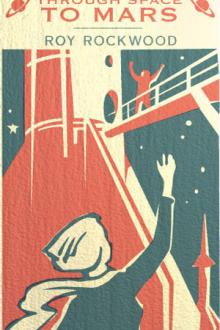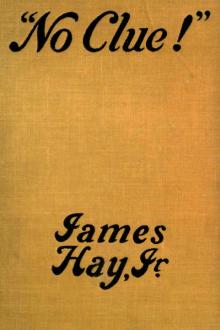Genre Fiction. Page - 212

licia and the angelic baby.
"What is the matter, Papa?"
"I am dreadfully poor, my child."
"Have you no money at all, Papa?"
[Illustration: "What is the matter, Papa?"]
"None my child."
"Is there no way left of getting any, Papa?"
"No way," said the King. "I have tried very hard, and I have tried all ways."
When she heard those last words, the Princess Alicia began to put her hand into the pocket where she kept the magic fish-bone.
"Papa," said she, "when we have tried very hard, and tried all ways, we must have done our very very best?"
"No doubt, Alicia."
"When we have done our very very best, Papa, and that is not enough, then I think the right time must have come for asking help of others." This was the very secret connected with the magic fish-bone, which she had found out for herself from the good fairy Grandmarina's words, and which she had so often whispered to her beautiful and fashionable friend the Duchess.
So she to

e ricks in farmers' yards. Out-door work was abandoned, horse-troughs at road- side inns were frozen hard, no stragglers lounged about, doors were close shut, little turnpike houses had blazing fires inside, and children (even turnpike people have children, and seem to like them) rubbed the frost from the little panes of glass with their chubby arms, that their bright eyes might catch a glimpse of the solitary coach going by. I don't know when the snow begin to set in; but I know that we were changing horses somewhere when I heard the guard remark, "That the old lady up in the sky was picking her geese pretty hard to-day." Then, indeed, I found the white down falling fast and thick.
The lonely day wore on, and I dozed it out, as a lonely traveller does. I was warm and valiant after eating and drinking,-- particularly after dinner; cold and depressed at all other times. I was always bewildered as to time and place, and always more or less out of my senses. The coach and horses seemed to execute in choru

an with the accuracy of a sculptor's eye. "There is onepoint, however, or, rather, two points, in respect to which our friendDonatello's abundant curls will not permit us to say whether the likenessis carried into minute detail."
And the sculptor directed the attention of the party to the ears of thebeautiful statue which they were contemplating.
But we must do more than merely refer to this exquisite work of art; itmust be described, however inadequate may be the effort to express itsmagic peculiarity in words.
The Faun is the marble image of a young man, leaning his right arm on thetrunk or stump of a tree; one hand hangs carelessly by his side; in theother he holds the fragment of a pipe, or some such sylvan instrument ofmusic. His only garment--a lion's skin, with the claws upon hisshoulder--falls halfway down his back, leaving the limbs and entire frontof the figure nude. The form, thus displayed, is marvellously graceful,but has a fuller and more rounded outline, more flesh, and

o dispose of the miserable horse that hasbrought me hither, and am preparing to continue the journey on foot."
Although he seemed to recite this story tranquilly enough, Iobserved the tears start to his eyes as he concluded. Thisadventure struck me as being not less singular than it wasaffecting. "I do not press you," said I to him, to make me theconfidant of your secrets; but if I can be of use to you in anyway, I gladly tender you my services." "Alas!" replied he,"I see not the slightest ray of hope. I must reconcile myselfto my destiny in all its rigour. I shall go to America: there,at least, I may be free to live with her I love. I have writtento a friend, who will send me money to Havre-de-Grace. My onlydifficulty is to get so far, and to supply that poor creature,"added he, as he cast a look of sorrow at his mistress, "withsome few comforts upon the way." "Well!" said I to him, "Ishall relieve you from that difficulty. Here is some money, ofwhich I entreat your acceptance: I a

een taught to write, by the young man without arms, who got his living with his toes (quite a writing master HE was, and taught scores in the line), but Chops would have starved to death, afore he'd have gained a bit of bread by putting his hand to a paper. This is the more curious to bear in mind, because HE had no property, nor hope of property, except his house and a sarser. When I say his house, I mean the box, painted and got up outside like a reg'lar six-roomer, that he used to creep into, with a diamond ring (or quite as good to look at) on his forefinger, and ring a little bell out of what the Public believed to be the Drawing-room winder. And when I say a sarser, I mean a Chaney sarser in which he made a collection for himself at the end of every Entertainment. His cue for that, he took from me: "Ladies and gentlemen, the little man will now walk three times round the Cairawan, and retire behind the curtain." When he said anything important, in private life, he mostly wound it up with this form of wo

Mermaid, the professor, theboys, Washington and Andy, sailed until they came to the greatshaft leading downward. Then the ship rose in the air anddescended through clouds of vapor. After many perils theyreached the center of the earth, where they found a strange raceof beings.
One day, to their horror, an earthquake dosed the shaft by whichthey had come to the center of the earth. The boys were indespair of ever getting to the surface again, but the professorhad been prepared for this emergency, and he had built a strongcylinder, into which all the travelers placed themselves. Thenit was projected into a powerful upward shooting column of water,which Professor Henderson hoped would take them to the surface ofthe earth. Nor was he mistaken. They had a terrible journey,but came safely out of it.
They opened the cylinder, to find themselves floating on the sea,and they were rescued by a passing vessel. Of course, they hadabandoned the Mermaid, leaving the craft in the center of thee

ll you?"
Mr. Sloane found compliance impossible. He could not steady his hand sufficiently.
"Hold that torch, judge," Hastings prompted.
"It's knocked me out--completely," Sloane said, surrendering the torch to Wilton.
Webster, the pallor still on his face, a look of horror in his eyes, stood on the side of the body opposite the detective. At brief intervals he raised first one foot, then the other, clear of the ground and set it down again. He was unconscious of making any movement at all.
Hastings, thoroughly absorbed in the work before him, went about it swiftly, with now and then brief, murmured comment on what he did and saw. Although his ample night-shirt, stuffed into his equally baggy trousers, contributed nothing but comicality to his appearance, the others submitted without question to his domination. There was about him suddenly an atmosphere of power that impressed even the little group of awe-struck servants who stood a few feet away.
"Stabbed," he said,

ead with an air of importance.
"Take your word for it," answered Hood without emotion, save for a slight annoyance at the other's arrogation of superior information. "'Tain't the first time there's been an earthquake since creation." And he strolled out, swinging to the doors behind him.
The night shift settled himself before the instruments with a look of dreary resignation.
"Say," he muttered aloud, "you couldn't jar that feller with a thirteen-inch bomb! He wouldn't even rub himself!"
Hood, meantime, bought an evening paper and walked slowly to the district where he lived. It was a fine night and there was no particular excitement in the streets. His wife opened the door.
"Well," she greeted him, "I'm glad you've come home at last. I was plumb scared something had happened to you. Such a shaking and rumbling and rattling I never did hear! Did you feel it?"
"I didn't feel nothin'!" answered Bill Hood. "Some one said there was a shock, that was all I heard about it.

As a child I was melancholy and timid, but that wasbecause the gentle consideration paid to my misfortune sunk deepinto my spirit and made me sad, even in those early days. I wasbut a very young creature when my poor mother died, and yet Iremember that often when I hung around her neck, and oftener stillwhen I played about the room before her, she would catch me to herbosom, and bursting into tears, would soothe me with every term offondness and affection. God knows I was a happy child at thosetimes, - happy to nestle in her breast, - happy to weep when shedid, - happy in not knowing why.
These occasions are so strongly impressed upon my memory, that theyseem to have occupied whole years. I had numbered very, very fewwhen they ceased for ever, but before then their meaning had beenrevealed to me.
I do not know whether all children are imbued with a quickperception of childish grace and beauty, and a strong love for it,but I was. I had no thought that I remember, either t

For its being a little gloomy, he had hired it principally for the gardens, and he and my mistress would pass the summer weather in their shade.
'So all goes well, Baptista?' said he.
'Indubitably, signore; very well.'
We had a travelling chariot for our journey, newly built for us, and in all respects complete. All we had was complete; we wanted for nothing. The marriage took place. They were happy. I was happy, seeing all so bright, being so well situated, going to my own city, teaching my language in the rumble to the maid, la bella Carolina, whose heart was gay with laughter: who was young and rosy.
The time flew. But I observed - listen to this, I pray! (and here the courier dropped his voice) - I observed my mistress sometimes brooding in a manner very strange; in a frightened manner; in an unhappy manner; with a cloudy, uncertain alarm upon her. I think that I began to notice this when I was walking up hills by the carriage side, and master had gone on in front. At any rate